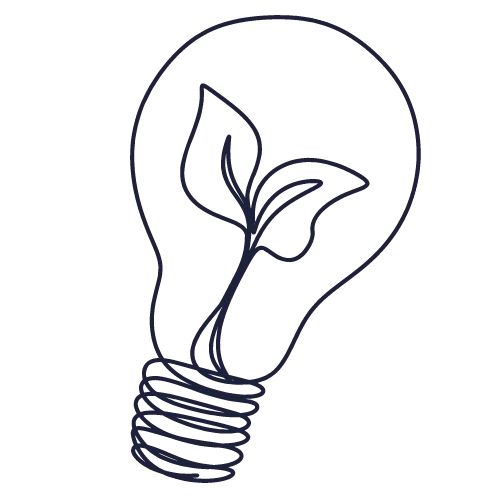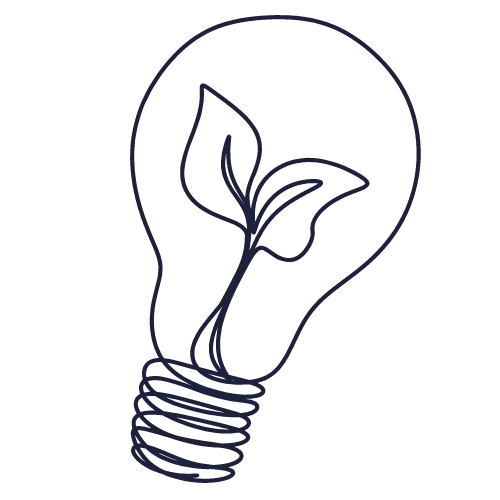This essay first appeared in the Winter 2025 print edition of the Santa Clara Review, one of the oldest literary publications in the Western United States. You can find Part 1 here.
Also, the student described here is a composite character. I always change names and identifying details to protect students’ privacy.
As always, thanks for reading. -Adam
I was raised in a culture that loved the idea of vocation—a strong desire or leaning for a certain career or course of action; especially a divine call to the religious life. To think deeply about vocation, when I was young, meant asking how your life’s labor could have meaning in the world. It meant living a life of consequence. (We sometimes also use vocational in the sense of trade or “vocational” schools, but that’s not what I’m talking about here.)
“The place God calls you to is the place where your deep gladness and the world’s deep hunger meet,” wrote theologian and inspirational author Frederick Buechner in 1973.
I first read that line when I was 20 years old, and I spent the better part of the next two decades trying to find the right answer to Buechner’s vocational question. I knew very little about myself and even less about the world’s hunger, but that didn’t stop me.
Business? Too materialistic. Engineering? Soulless. Medicine? Wealth accumulation masquerading as sacrifice.
During this period of my life I went to see a therapist for the first time. At the end of our second session she said, “Every time I ask you who you are, you tell me who you’re not. Your homework for next week is to see if you can describe your choices without telling me what’s wrong with everyone else’s choices.” I thought she was mean and never went back. She wasn’t mean, she was right, but at the time I couldn’t tell the difference. Especially when the person being right was a woman.
With all my confident knowledge of what vocation couldn’t be, I turned to the university as an institution that could help me build a meaningful answer to Buechner’s question. I thought the university would allow me to sidestep the winner-take-all economy of the marketplace by becoming an ethics professor. What I didn’t know then, but know now, is that the university is shot through with everything I thought I’d be avoiding: Materialism. Soullessness. Wealth accumulation masquerading as sacrifice.
“Capitalism relies on individualism and competition,” writes Washington-based author and social healer Bill Aal. “The university as a middle-class institution both reinforces and reproduces these values. … Collective work is generally not rewarded or even recognized.”
The problem with vocational thinking in this contemporary moment is that it encourages a collapse of personal identity and professional identity at the expense of collective work. Trying to match your deepest desires to the world’s deepest needs every morning at 9am weighs you down with existential pressure and maximalist intensity. It also often makes you hard to work with. Or, at least, it made me hard to work with.
I don’t mean to say that meaning doesn’t matter—it does. Or that we shouldn’t care about what we do—we should. But when you mix vocational thinking with the Protestant work ethic and late-stage capitalism, the result, in my case, was overcommitment, isolation, and self-importance.
I’m not the only one. Research from Sara Jaffe, Anne Helen Peterson, and others suggests that people of my generation are overworked and uninspired. We have trouble leaving the office, closing the inbox, and turning off the phone. We lack deep friendships and have difficulty understanding our identity apart from the professional commitments that define them. We Peloton.
These days I don’t think much about vocation. I’m less aligned with Buechner and more aligned with the philosophy that abolitionist Mariame Kaba attributes to her father: “Everything worthwhile is done with other people.”
These days I think a lot about collective work, and I’m not the only one.
“The cure for burnout is not ‘self-care,’” Nagoski and Nagoski write. “It is all of us caring for one another.”
I’m interested in learning to set boundaries and understand my own limits. I don’t think this means that I’ve abandoned the zeal for a life of meaning that occupied my earlier days. It’s more that I resonate with what Maggie Nelson wrote in The Argonauts: “I will always aspire to contain my shit as best I can, but I am no longer interested in hiding my dependencies in an effort to appear superior to those who are more visibly undone or aching.”
I still care deeply about the world’s hunger, and I am beginning to understand my own desires. What I hope I have given up is the binary thinking—good people and bad people, the hungry and the overfed. I hope I am less judgmental of others. I feel less judgmental of others.
“To become larger spiritually, it is often necessary to get smaller,” writes psychologist Miriam Greenspan.
These days I am trying to get smaller.
My conversation with Grace is coming to a close because it’s time for me to pick up my kids from school. I leave Grace with a test that she can use in the days ahead as she decides what’s “next.” First, a little setup.
In our conversation Grace described a feeling of dread at the thought of reentering the classroom. “I missed ten consecutive days, but my body felt as consumed with stress and worry as it had the day that I left.” It was like she hadn’t been away at all—the days of rest disappeared like water down a drain.
People often say that the best work doesn’t make you tired. “Find a job you enjoy doing, and you will never have to work a day in your life,” Mark Twain famously wrote.
I think this is wrong. It sounds like it might be true, but it’s not.
Everyone I know who loves their work is exhausted at the end of the day. The question isn’t how tired the work makes them. The question is how quickly their energy returns.
Here’s an example.
If I had to spend 10 hours with 12 five-year-olds one Monday, I could do it. I know how to sing songs and play games, dole out snacks and clean up scraped knees. I’d even enjoy myself. And at the end of the day, I’d be exhausted.
It would take me a week to summon the energy to want to do it again.
If I had to spend 10 hours with 12 college students, I could do it. I know how to facilitate a classroom, ask questions, and explain concepts. I know how to dole out snacks. I’d enjoy myself, and at the end of the day I’d be exhausted.
The next morning I’d be ready to do it all again.
Both forms of labor are exhausting, and I’m fully capable of doing both. But when I’m working with college students, my energy returns much more quickly. I don’t know why, it just does. That’s part of how I know I’m doing the right kind of work for me. It’s also why I’m not a daycare teacher.
The test, I tell Grace, is to follow your energy return instead of your energy expenditure. Write down each night what made you most tired and write down each morning what you have the most energy for in the day ahead. The point of the test isn’t to try to eliminate any work that makes you tired—email drains everyone, but we’re mostly stuck with it. The point of the test is to try to increase the kinds of work that have a speedy energy return.
Perhaps Grace will return to the classroom one day, perhaps she will not. My hope is that she will learn to avoid Human Giver Syndrome. My hope is that her compassion will remain.
Monitor your energy return, I tell her. See where it leads you. And be kind to yourself.
“I’ll try,” Grace says. “But I think it’s going to take some time.”








